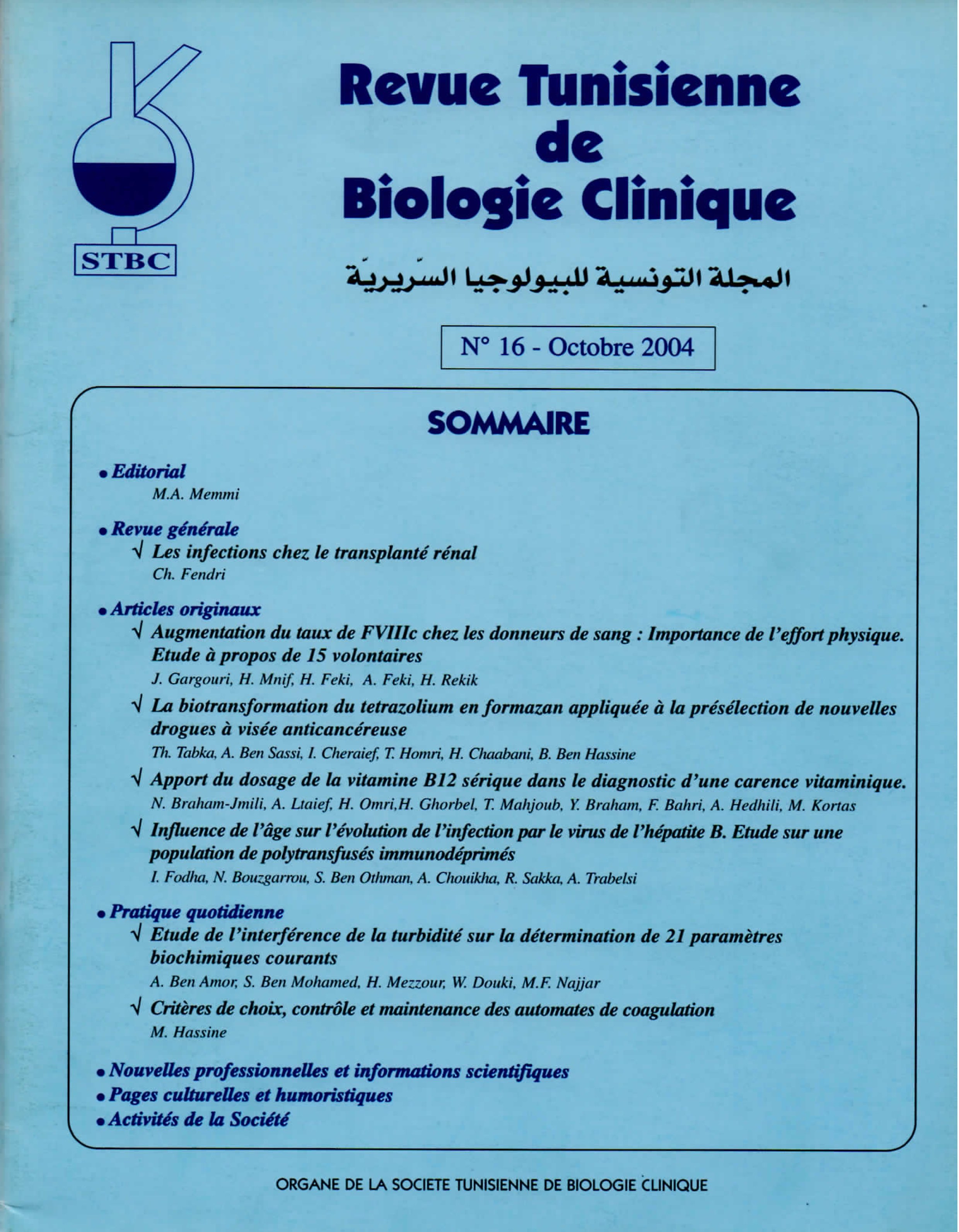Abstract
The hepatitis B virus (HBV) poses a major public health problem for two reasons: its frequency and severity. Being itself minimally cytotoxic, it is the variable intensity of the conflict between the aggressor and the immune defenses that determines the severity of the infection and the polymorphism of hepatitis B. Consequently, the natural history of the infection varies depending on the age and the immune competence of the individual. Given that one of the primary modes of transmission is through blood, individuals who have received blood product transfusions are particularly at risk. Our study was conducted on two groups of immunocompromised and polytransfused individuals, one composed of adults and the other of children. Its objectives were to determine the natural history of HBV infection in immunocompromised subjects and to compare the evolution after HBV exposure between the two age groups. Among the 29 "anti-HBc positive" children (a marker indicating previous contact with HBV), 10 progressed to chronicity, of which 9 replicated the virus; the remaining 19, cured by natural immunization, all had a high titer of protective anti-HBs antibodies. In contrast, the evolution of infection was very different in the second group: among the 29 "anti-HBc positive" adults, 6 progressed to chronicity, of which 5 were asymptomatic carriers; furthermore, 10 of the 23 cured adults had an anti-HBs antibody titer below 10 IU/L. Thus, this study reveals that children were more likely to progress to chronicity than adults. Additionally, chronically infected children were significantly more frequently active carriers than adults. Furthermore, in children naturally immunized against hepatitis B virus through previous contact, the anti-HBs antibody titer was significantly higher than in adults.

This work is licensed under a Creative Commons Attribution 4.0 International License.
Copyright (c) 2004 Revue Tunisienne de BIOLOGIE CLINIQUE

